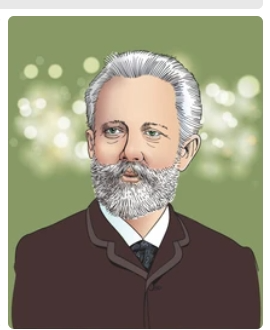
Pyotr Ilyich Tchaikovsky, one of the greatest composers of all time, left behind a legacy of breathtaking symphonies, ballets, and concertos. His music overflows with deep emotion—passionate, melancholic, and dramatic. But behind the beauty of his work lay a personal struggle that shaped his life and art: his homosexuality.
https://rosana.co.ke/wp-admin/post.php?post=22&action=edit Tchaikovsky: A Life in the Shadows
Born in 1840 in Russia, Tchaikovsky grew up in a society where same-sex relationships were not just frowned upon but criminalized. Despite this, historical evidence strongly suggests that he was homosexual, a fact he could never openly embrace due to the rigid conservatism of 19th-century Russia. His letters, private correspondences, and accounts from those who knew him reveal a life of hidden desires, secret relationships, and internal turmoil.
Unlike some artists who could escape societal norms, Tchaikovsky was deeply aware of his reputation. He belonged to the upper class and worked closely with government figures, including Tsar Alexander III. Openly acknowledging his sexuality could have ended his career, if not his freedom. As a result, he lived a dual existence—publicly conforming to expectations while privately seeking moments of happiness with men.
Tchaikovsky: Romantic Relationships and Forbidden Love
One of the most well-documented aspects of Tchaikovsky’s personal life is his deep affection for younger men. His letters (many of which were censored or destroyed by Soviet authorities) indicate passionate feelings for several individuals.
One of the most significant relationships in his life was with his student, Eduard Zak, a talented young musician. Tchaikovsky’s letters suggest that he was deeply in love with Zak, but their relationship never had the chance to develop fully. Zak died by suicide at the age of 19, an event that devastated Tchaikovsky. Some scholars believe this loss heavily influenced the composer’s melancholic works.
Another key figure was Vladimir Davydov,
also known as “Bob,” Tchaikovsky’s beloved nephew. The composer’s letters to Davydov reveal profound affection, sometimes bordering on romantic obsession. Tchaikovsky even dedicated his famous Symphony No. 6, the “Pathétique”, to Davydov. This symphony, which many interpret as a musical farewell to life, was premiered just days before the composer’s mysterious death.
A Doomed Marriage
In an attempt to conform to societal expectations, Tchaikovsky made a disastrous decision—he married Antonina Miliukova in 1877. The marriage was an unmitigated failure. Tchaikovsky had no genuine romantic interest in Antonina and found their union unbearable. Within weeks, he fled, and they never lived together again. This brief and unhappy marriage nearly led him to suicide, further proving that he could not suppress his true self.
Interestingly, this period of emotional turmoil coincided with his work on “Eugene Onegin,” an opera based on Pushkin’s novel. The opera tells the story of a woman who is rejected by the man she loves—an eerie parallel to Tchaikovsky’s own situation with Antonina.
The Influence of Sexuality on His Music
Many believe Tchaikovsky’s sexuality deeply influenced his compositions. His works often convey themes of longing, unfulfilled love, and tragedy. The “Romeo and Juliet Overture” is filled with passionate intensity, while the “Pathétique Symphony” is widely interpreted as an expression of sorrow and despair.
His ballet “Swan Lake” can also be seen as symbolic. The story of Prince Siegfried, who longs for true love but faces an impossible fate, mirrors Tchaikovsky’s own struggles. Some scholars suggest that the ballet’s themes of transformation and hidden identity reflect the composer’s internal battle with his sexuality.
His Mysterious Death
Tchaikovsky’s death in 1893 remains a topic of debate. Officially, he died of cholera after drinking contaminated water. However, some researchers believe he may have been forced to take his own life to avoid a scandal involving his sexuality. According to one theory, a group of influential figures in St. Petersburg society pressured him into ending his life before his homosexuality became public knowledge.
While the truth may never be fully known, his music remains his most profound legacy. The raw emotion in his compositions speaks to the struggles and passions of a man who could never fully be himself in the world he lived in.
Legacy and Modern Recognition
Today, Tchaikovsky is celebrated not only for his music but also as an LGBTQ+ historical figure. While Russia continues to struggle with LGBTQ+ rights, the world acknowledges the beauty and brilliance
that came from Tchaikovsky’s inner turmoil. His story serves as a reminder of the resilience of artists who, despite societal constraints, find ways to express their deepest truths.
His life may have been filled with personal pain, but through his music, Tchaikovsky found a way to communicate love, longing, and beauty—emotions that resonate across generations.
https://www.shutterstock.com/image-photo/dnipropetrovsk-ukraine-december-26-members-state-241082803







More Stories
Music, Time, and the Sound of New Beginnings
? Did You Know? The Piano Was Invented to Play Soft and Loud
? Did You Know? The Tritone Was Once Called “The Devil in Music”